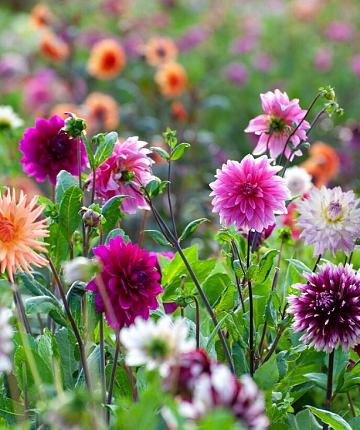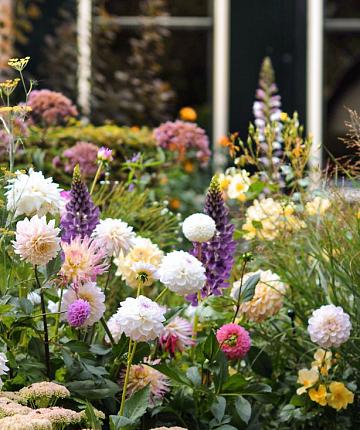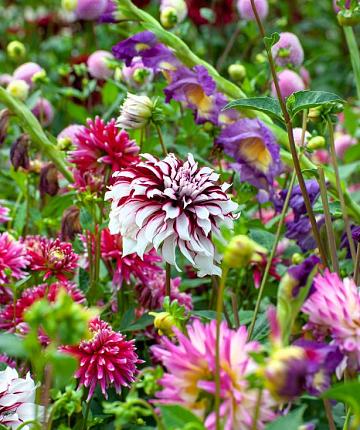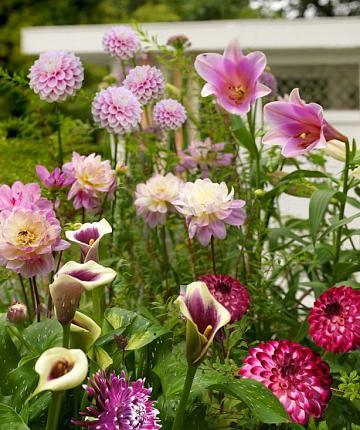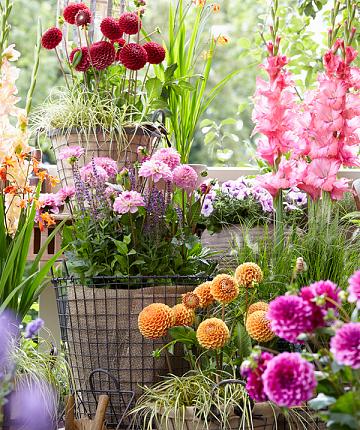Gladiolus bulbs
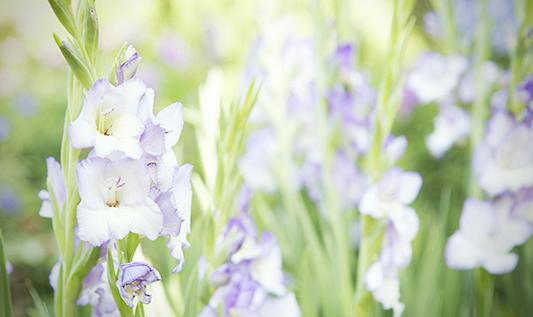
The gladiolus or sword lily is a leading summer flower that blooms from July to September. Long stems with several flowers emerge from the tuber, which start blooming at the bottom, and slowly get several flowers towards the top. One stem contains up to 30 flowers in many different colors with long green leaves that resemble a sword. The gladiolus originally comes from southern Europe, Asia and West and South Africa. The species that we know in the Netherlands are not the botanical gladioli but variations thereof. The South African species are the ancestors of the gladiolus from Dutch soil. A gladiolus is not hardy. You plant the gladiolus tuber when the soil is frost-free.
A gladiolus does not have a bulb, but a tuber
Gladiolus are not bulbs but tubers: often dry elongated tuberous roots. The tubers were formerly used in South Africa for food and medicine. The flower was already known in Roman times, but it was not until 1600 that the Dutch cultivation of gladioli began. There were only small quantities on the market for a high price, making the tubers available only to the wealthy.
Gladiolus for victory
The Latin botanical name for gladiolus is Gladiolus. This is derived from the word gladius which means sword in Romans. It refers to the leaves of the flower that resemble a sword. Back in Roman times there were gladiatorial battles. They fought for the death or victory of the gladiolus. Then there was a victory buried among the gladiolus. The flower therefore stands for strength, victory and pride.
Colourful variations
Gladiolus come in many different colors such as red, pink, white, yellow, cream, purple, orange and multi-colored. They have bell-shaped, narrow or wide flowers and grow from 20-30 to 200 cm. There are scented and non-scented varieties with sword-like leaves. There are a total of about 255 species. The gladioli we know are often large with large flowers. In addition, there are the smaller gladiolus for cut, gladiolus with frayed flowers and those with a butterfly-like interior.
Varieties of gladiolus
There are gladioli that are perfect for pots because they stay compact. But you also have species that grow tall, up to 2 meters. These are perfect for a picking garden. Gladiolus of which you can clearly see the core with pollen are very attractive to bees and butterflies. The species can be divided into three hybrid groups.
The Grandiflorus group
The Grandiflorus gladioli are large-flowered gladioli with often 20 to 30 flowers per stem that can grow to more than 100 cm in length. Well-known types are the espresso, evergreen, traderhorn and nova lux. There are also the frayed large-flowered gladioli in many colours.
Nanus gladiolus
Nanus gladioli are shorter varieties that stay below 70 cm. They have 7 flowers per stem and come in different types and colours. The flowers resemble those of small lilies. Three to four flowering stems emerge from one tuber. You often see the nanus gladiolus in bouquets. A well-known variety is the Nanus Nymph with white flowers and a pink pattern.
Primulinus group of gladiolus
Gladiolus from the Primulinus group have thin but sturdy stems and bloom all summer long. The stems are 60 to 80 cm high and the petals are large and have a cap that falls over the stamens. A well-known variant in this group is the butterfly gladiolus. This gladiolus has smaller flowers than the large-flowered varieties and has ruffled petals. Because of the (folded petals (like wings) with different colors on the inside and outside of the flower, they are known as butterfly flower. Well-known varieties are the purple with lilac blue star and shocking with a light pink outside but red inside. The primulinus gladiolus bloom from early to late summer.









